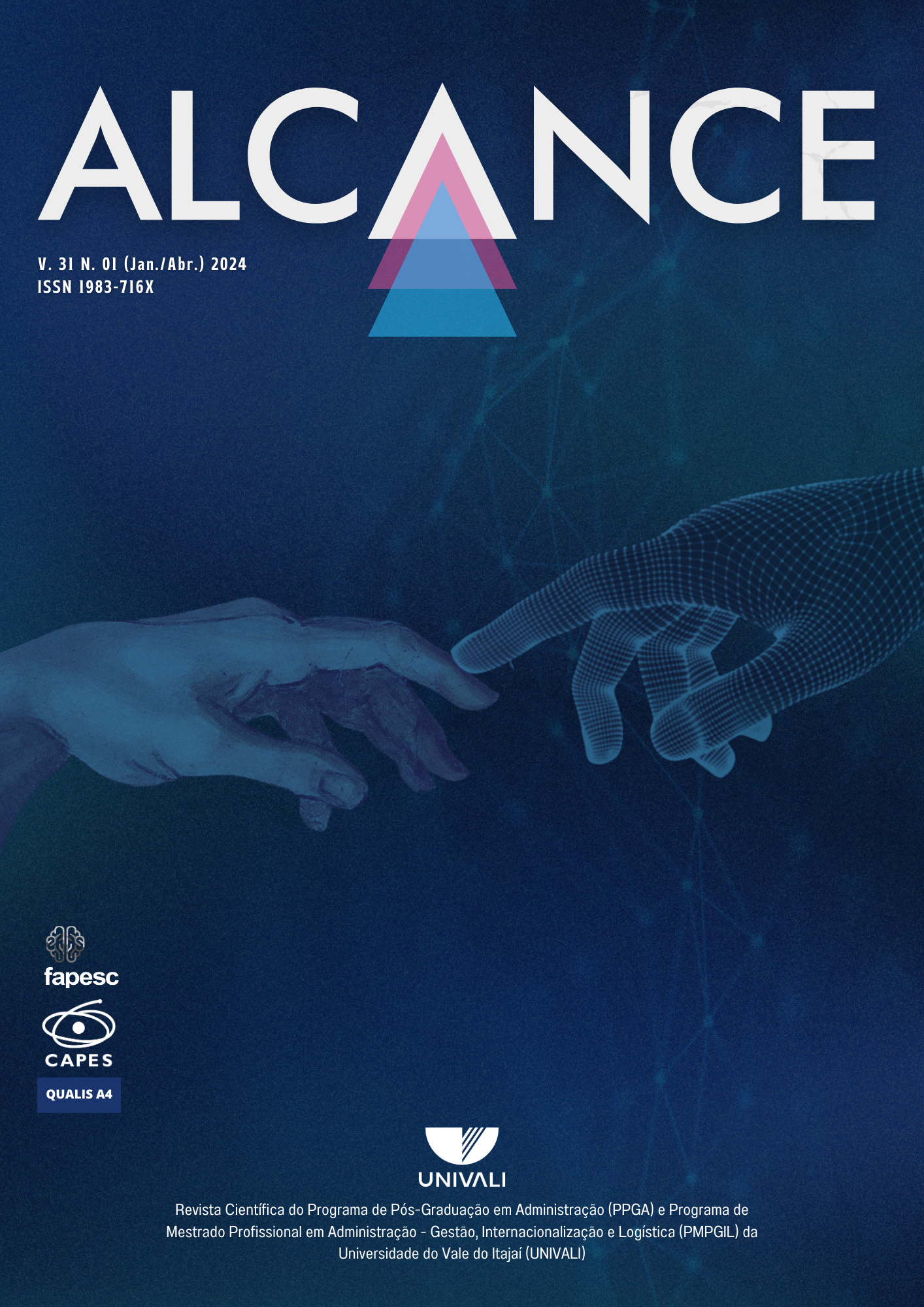
Dilemma: This teaching case raises a fundamental question: Are the current company's marketing strategies able to sustain its growth, or should it consider focusing on digital transformation?
Educational objective: To empower students in debating complex issues, proposing alternatives for the company's future and considering business strategy, digital transformation, and consumer behavior.
Background: The data collection for the case comprised an in-depth interview with the group's vice president and documentary analysis based on news and information about the retail group on the Internet and social networks. The results indicated that the usage of heuristics, such as anchoring, significantly impacts consumer choices.
Main topic: The marketing strategies of a food retail company, Grupo Supernosso, in Belo Horizonte (MG), Brazil, from the perspective of Consumer Behavior. It uses the Theory of Planned Behavior and the Theory of Heuristics as its theoretical bases. The case investigates how the company's actions can influence consumers' purchasing decisions, such as the organization of products on the shelves and the architecture of the stores.
Audience: Undergraduate and postgraduate marketing students and training programs for marketing and management executives.
Originality/value: This study offers opportunities for learning and debate about the future impacts on businesses, considering that the competitive edge is based on the emotional components of the consumer experience. The case stimulates critical reflection on innovative alternatives for sustaining the company in the face of emerging digital disruptions.




ABCOMM. (2023). ABCOMM. Retrieved December 12, 2023, from https://dados.abcomm.org/numeros-do-ecommerce-brasileiro
ABRAS. (2023). ABRAS 2023: Check out the list of the biggest supermarkets. Available at: https://smarket.com.br/abras-2023-confira-lista-dos-maiores-supermercadistas/
Bharadwaj, A., El Sawy, O. A., Pavlou, P. A., & Venkatraman, N. V. (2013). Digital Business Strategy: Toward a Next Generation of Insights. MIS Quarterly, 37(2), 471-482
Brasscom (2023). Sector Report 2022 ICT Macrosector. Retrieved on 11/02/2024 from https://brasscom.org.br/wp-content/uploads/2023/05/BRI2-2023-008-001-Relatorio-Setorial-v32-versao-resumida-SITE_compressed.pdf
Ajzen, I. (1991). The theory of planned behavior. Organizational Behavior and Human Decision Processes, pp. 50, 179–211.
Amankwah-amoah, J.; Khan, Z.; Wood, G.; Knight, G. (2021). COVID-19 and digitalization: The great acceleration. Journal of Business Research, [S. l.], year 2021, v. 136, p. 602-611. DOI https://doi.org/10.1016/j.jbusres.2021.08.011.
AMIS (2019). Super Nosso transforms waste into useful products using a 3D printer. Available at: https://amis.org.br/plus/modulos/noticias/ler.php?cdnoticia=964
Angelo, C. F., Luppe, M. R., & Fouto, N. M. M. D. (2010). Rationality and irrationality in consumer decision-making. Revista de Negócios, 15(1), 77-90.
Bettman, J. R., Luce, M. F., & Payne, J. W. (1998). Constructive consumer choice processes. Journal of Consumer Research, pp. 25, 187–217.
Camargos, F., & Daros, T. (2021). The digital classroom: pedagogical strategies to foster active online and hybrid learning. Penso Editora.
Cervi, C. (2020). Heuristics in Choice: How the Organization of Products on the Shelf Influences Consumers' Purchasing Decisions. Revista de Administração da Unimep, 18(1), 111-131.
Christensen, C. R., Garvin, D. A., & Sweet, A. (1991). Education for judgment: The artistry of discussion leadership. Harvard Business School Press.
Comunidade Viva (2017). Super Nosso donates 100 baskets to our campaign. Available at: https://www.comunidadevivasemfome.org.br/post/super-nosso-doa-100-cestas-para-nossa-campanha
Engel, J. F., Blackwell, R. D., & Miniard, P. W. (2005). Consumer Behavior. Thomson Pioneer.
FGV (2023). IT Usage Survey. FGV EAESP. Retrieved from https://eaesp.fgv.br/producao-intelectual/pesquisa-anual-uso-ti
Futurecom (2021). Digital transformation will bring R$845 billion in investments to Brazil by 2024. Futurecom. Retrieved from https://www.futurecom.com.br
Goldstein, M., & Almeida, H. S. (2000). Critique of integrative models of consumer behavior. Revista de Administração da USP, 35(1), 14-22.
Greco Design (2021). Supernosso. Available at: https://grecodesign.com.br/projeto/supernosso/
Hands, D. W. (2010). Economics, psychology and the history of consumer choice theory. Cambridge Journal of Economics, 34, 633-648.
Kane, G. C., Palmer, D., Phillips, A. N., Kiron, D., & Buckley, N. (2015). Strategy, not technology, drives digital transformation. MIT Sloan Management Review, July 14, 2015, pp. 1-25
Kotler, P., & Keller, K. L. (2016). Marketing Management (15. ed.). Pearson.
McKinsey & Company (2019). Digital transformations in Brazil: insights into the level of digital maturity of companies in the country. Available at: https://www.mckinsey.com/
Rogers, D. (2017). Digital transformation: rethinking your business for the digital age. São Paulo: Autêntica Business.
Sia, S. K., Soh, C., Weil, P. (2016). How DBS Bank Pursued a Digital Business Strategy. MIS Quarterly Executive, [S. l.], p. 105-121
Solomon, M. R. (2020). Consumer Behavior: Buying, Owning, and Being (12th ed.). Pearson
Subramaniam, M. (2021). The 4 tiers of digital transformation. Harvard Business Review. Retrieved from https://hbr-org.cdn.ampproject.org/c/s/hbr.org/amp/2021/09/the-4-tiers-of-digital-transformation
Tversky, A., & Kahneman, D. (1974). Judgment under Uncertainty: Heuristics and Biases. Science, 185, 1124-1131.
Turley, L., & Milliman, R. E. (2000). Atmospheric Effects on Shopping Behavior: A Review of the Experimental Evidence. Journal of Business Research, 49(2), 193–211.




This work is licensed under a Creative Commons Attribution 4.0 International License.






Revista Alcance is a Brazilian free access journal, published every four months, linked to the Graduate Program in Administration and the Professional Master’s degree in Administration, Internationalization and Logistics Program of the University of Vale do Itajaí – Univali. We seek to publish theoretical-empirical and technological articles in the areas of Business Administration. Different theoretical and methodological perspectives are welcome, as long as they are consistent with and relevant to the development of the area.

